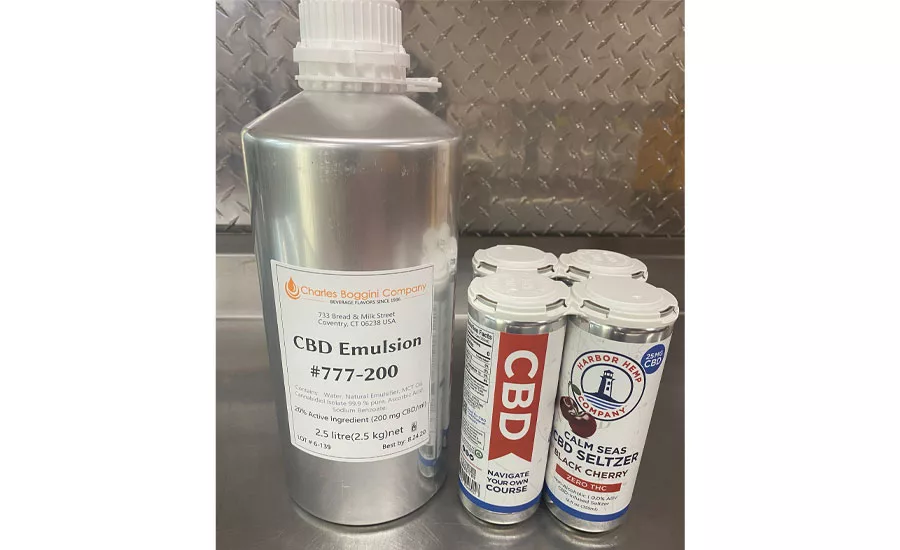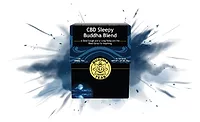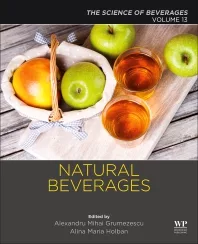Ingredient Spotlight
Functional CBD brings calming effect to waters, teas
Consumer usage of CBD products on upswing


A highlight of “The Wiz” features Diana Ross as Dorothy and Michael Jackson as the Scarecrow joyfully dancing as they “ease on down, ease on down the road” while “not carrying nothing that might be a load.” Bringing a laid-back, non-psychotropic vibe to the beverage market, cannabidiol (CBD) is helping consumers “ease into” use of this all-natural, functional ingredient as it helps alleviate pain, stress and anxiety.
CBD isn’t as well understood by the public as tetrahydrocannabinol (THC), the ingredient responsible for the high, but interest and excitement about CBD is gaining some serious momentum, says Andrew Wong, president of Axiomm Technologies Ltd., Calgary, Alberta.
“It is not a psychoactive, but has been touted as having numerous therapeutic properties,” he says. “People have been known to use CBD as an anti-anxiety, anti-depressant, anti-convulsant, anti-psychotic, anti-tumoral, anti-inflammatory and painkiller.”
Discovered in 1940, CBD is one of 113 identified cannabinoids in the Cannabis sativa plant and accounts for as much as 40 percent of the plant’s extract.
“The non-psychotropic cannabinoid appears to provide a degree of relief (at certain dose levels) from occasional pains and anxieties,” says Jolene Jacobs, general manager for Denver-based Caliper Ingredients. The ingredient is a “generally well tolerated
“The non-psychotropic cannabinoid appears to provide a degree of relief (at certain dose levels) from occasional pains and anxieties,” says Jolene Jacobs, general manager for Denver-based Caliper Ingredients. The ingredient is a “generally well tolerated [compound] with a good safety profile” that demonstrates no risk of addiction, she adds, citing the World Health Organization (WHO). with a good safety profile” that demonstrates no risk of addiction, she adds, citing the World Health Organization (WHO).CBD-infused products come in many forms including gummies, fruit chews, tincture oils, bath bombs, creams and ready-to-drink (RTD) waters and teas.
There’s also science and technology behind producing nanoemulsion products. For instance, Santa Barbara, Calif.-based Aqueous Wellness offers advanced water-soluble nanotechnology that transforms the highest grade, third-party tested CBD oils and insolates into water-soluble liquids and powders for maximum bioavailability, faster onset and precision dosing, it says. Flavorless, single-dose 10 mg Aqua Shots and 10 mg Fruit chews are among the non-GMO products it offers.
“For the past year, we have worked hard to establish the advanced Nano CBD products in the Aqueous Wellness collection,” Aqueous Wellness Co-founder Margie Floris said in a statement. “Now, we’re proud to introduce the benefits of this high-grade, potent plant extract to consumers across the U.S.”
Additionally, the Elixirs for Quantum Living that balances the three primary aspects of human nature — sleep, energy and mood — will launch in the first quarter of 2021, it adds.
Nearly stealing the show
Demand for CBD is literally “growing like a weed” because of the health, wellness and medical need states, where cannabis plays and alcohol does not. This has increased consumer product adoption and utilization.
In 2018, the global CBD market was valued at $4.6 billion and is expected to grow at a compound annual growth rate (CAGR) of 22.2 percent from 2019 to 2025 to $23.6 billion by 2025 according to Grandview Research’s Market Analysis Report.
Michele Scott, senior analyst at Chicago-based Mintel, notes that 28 percent of consumers are interested in trying CBD-infused beverages, indicating plenty of room to grow the category.
She highlights that new product launches for CBD are borrowing from other beverage trends, including sparkling water and seltzers, caffeinated beverages and functional drinks.
“Many of these products contain other trending functional features, like tumeric and alkaline water or specialty labels like sugar-free and organic,” Scott explains. “CBD beverages haven’t (yet) stolen significant market share from other functional beverages due to scattered availability and general newness, but functional beverage brands should keep an eye on these products going forward.”
Both marijuana-derived CBD beverages sold in dispensaries and hemp-derived CBD beverages in “mainstream” retail are growing in the market, says Jessica Lukas, senior vice president for commercial development at BDSA (formerly BDS Analytics), Boulder, Colo.
Citing Chicago-based Information Resources Inc. (IRI) data, CBD edibles and beverages grew 130 percent year-over-year (YOY), while the BDSA dispensary channel saw a 55 percent YOY product increase, Lukas says.
“The growth is driven by more products available, increased availability and consumer interest,” she says. “Some consumers look to CBD for relax, unwind, sleep benefits which do have overlap with beverage alcohol occasions. CBD makes functional beverages that much more functional, e.g., tea to relax, coffee to energize, sports drink for recovery, etc.”
New York-based Beverage Marketing Corporation’s newsletter, Beverage Strategist, notes that beverages are a small but rapidly growing part of the U.S. legal cannabis market. “The beverage format allows these products to fit into traditional retail channels, eliminating the need to visit alternative channels. Single-serve beverage characteristics such as being affordable and portable add to the ease of trial.”
Confusing guidelines for CBD
The legal ramifications of both CBD and THC have created some challenges when producing and selling products as some states have legalized the ingredients while others have not.
“Federal guidelines do not permit CBD in beverages; however, each state has their own guidelines. It can be confusing,” explains Glen Boggini, owner of Charles Boggini Co. LLC, Coventry, Ct. “Beverage producers have to understand their local state guidance. Many states have approved the use of CBD in food/beverage.”
Although the cultivation and extraction of hemp-derived CBD was legalized under the 2018 Farm Bill, the U.S. Food and Drug Administration (FDA) has not determined how to regulate CBD as a food additive, instead overseeing CBD exclusively as a drug for the treatment of rare forms of severe juvenile epilepsy, Caliper Ingredients’ Jacobs says.
When it comes to the dispensary channel, the legal question becomes more complicated. “In some states, if sold in the dispensary channel, hemp-derived CBD products are legal, as the FDA does not have jurisdiction over dispensaries as they are not federally legal,” BDSA’s Lukas explains. “Further, marijuana-derived CBD in most ingestible formats are legal in most adult-use and medically legal cannabis states in the U.S.”
Beer and soft drink distributors are in total agreement that the lack of FDA regulation is the biggest hurdle to full participation in the segment, BMC’s Beverage Strategist newsletter states.
“Many retailers are asking for hemp/CBD beverages, but distributors are largely waiting for one of the huge industry players to really step up and join in,” the newsletter states. “Beer distributors have an extra layer of caution, as there is the additional risk of losing their federal beer permits by carrying these products.”
Yet, new product innovation in the CBD beverage market abounds. With fall officially here, Millerton, N.Y.-based The Hemp Division released it CBD Hot Tea Blends featuring chocolate, coconut and holy basil with U.S. grown CBD hemp extract. Sleep and Boom tea sachets contain 25 mg and 22 mg of CBD, respectively, and “can add a little boom and sleep to normal routines,” the company says.
Made using high-pressure processing (HPP) to enhance flavor profile and extend shelf life, a RTD Honeydrop CBD Lemonade contains 20 mg of full spectrum CBD and 4 grams of sugar.
BDSA’s Lukas predicts that the total cannabinoid-infused market, both hemp- and marijuana-derived, will be $45 billion by 2024. She says, “For most major companies, this is too big a number to ignore, whether that be in risk mitigation and protecting their core business or in opportunity assessment.”
Looking for a reprint of this article?
From high-res PDFs to custom plaques, order your copy today!








